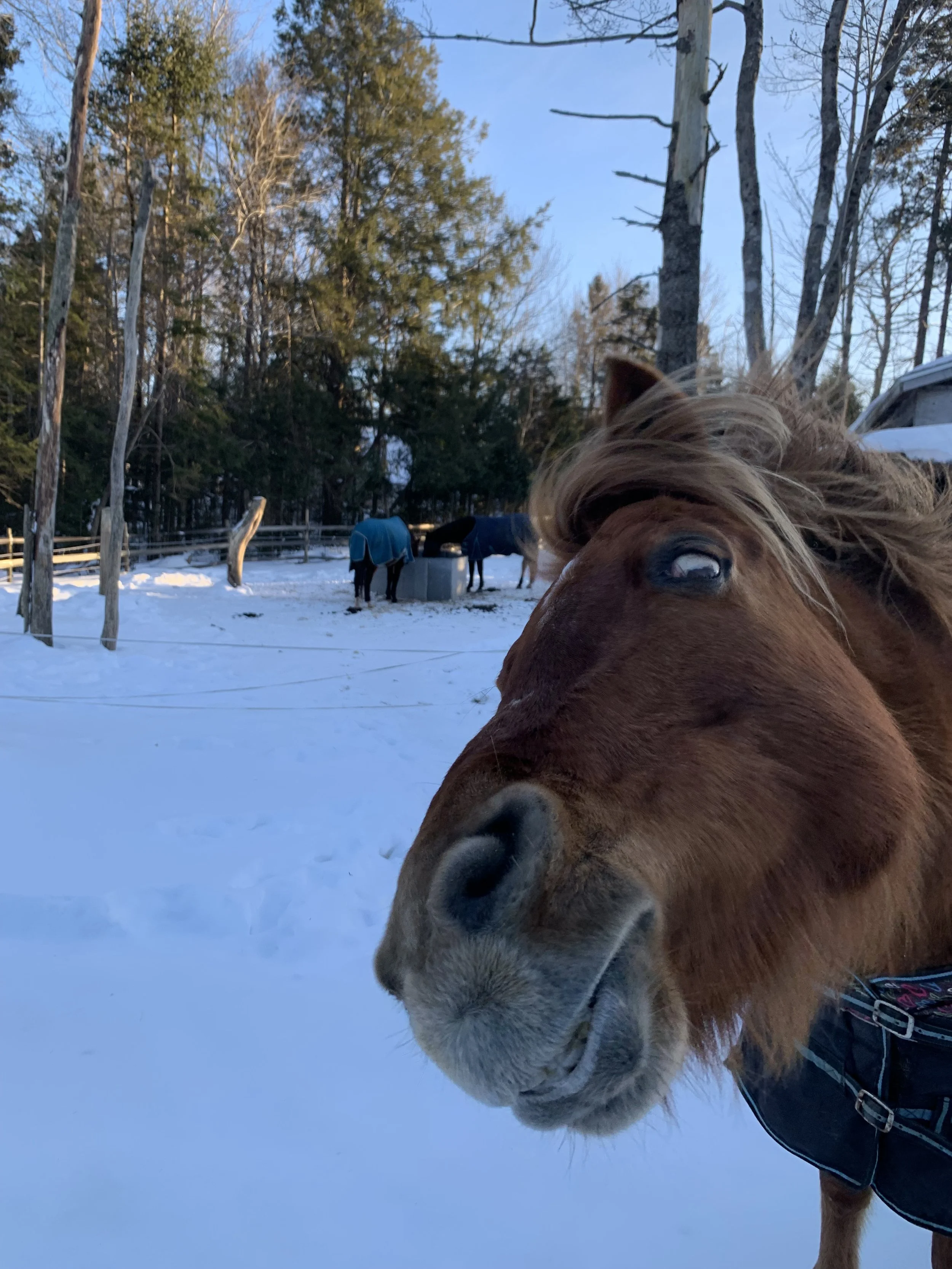Holding Space: Boundary Lessons from Angel
For anyone who has ever met Angel, you’ll know that Angel has very firm boundaries, and is quick to tell you what she likes and doesn’t like. Horses have strong boundaries because of their nature as prey animals and their instinctual need for safety, making them naturally wired to be hyper-aware of their surroundings, potential threats and their overall well-being.
Clear and direct communication of boundaries is essential for protection, and horses don’t hesitate to show discomfort if someone invades their personal space. For example, without falter if Angel doesn’t want to be touched or approached, she’ll subtly tell you by pinning her ears, which is her way of telling you to back off. If ignored, her communication progressively becomes more overt (possibility biting or kicking). Ignoring Angel’s boundaries can lead to a range of negative consequences (physical harm, distrust, etc.), so it’s important to respect what she’s asking. Angel has taught me the importance of being clear and direct with our boundaries. If we’re vague or inconsistent, it’s easy for those boundaries to be misunderstood or ignored. Horses don’t apologize or feel guilty about asserting their needs, they teach us that clear boundaries are necessary for healthy relationships.
Angel has also taught me the importance of honouring our need for space and protecting our emotional well-being. Within a herd, horses need to navigate a lot of different dynamics due to the social hierarchy. Horses lower in the hierarchy have to defer to the dominant ones, often causing stress and potential conflict. To avoid the stress of navigating herd dynamics, you’ll often find Angel on her own, away from the herd, eating happily and in control of her space. Just like humans, horses need personal space to feel comfortable and at ease. When Angel sets boundaries by giving herself space, she ensures that she can navigate her environment which helps her feel safe and more relaxed.
Angel has taught me that boundaries are not barriers, but rather are essential for self-respect and healthy relationships. Horses show us that when boundaries are clearly communicated and respected, we allow more opportunities for connection, trust, and emotional safety.

